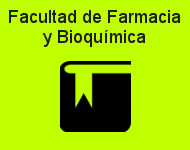2 documentos corresponden a la consulta.
Palabras contadas: misfolded: 4, proteins: 458
Almeida, A. - Catone, M.V. - Rhodius, V.A. - Gross, C.A. - Pettinari, M.J.
Appl. Environ. Microbiol. 2011;77(18):6622-6629
2011
Temas: Coexpressed - E. coli - Granule-associated proteins - Heat stress - Heat-shock - Heterologous proteins - Misfolded proteins - PCR analysis - PHB accumulation - Poly(3-hydroxybutyrate)
Descripción: Phasins (PhaP) are proteins normally associated with granules of poly(3-hydroxybutyrate) (PHB), a biodegradable polymer accumulated by many bacteria as a reserve molecule. These proteins enhance growth and polymer production in natural and recombinant PHB producers. It has been shown that the production of PHB causes stress in recombinant Escherichia coli, revealed by an increase in the concentrations of several heat stress proteins. In this work, quantitative reverse transcription (qRT)-PCR analysis was used to study the effect of PHB accumulation, and that of PhaP from Azotobacter sp. strain FA8, on the expression of stress-related genes in PHB-producing E. coli. While PHB accumulation was found to increase the transcription of dnaK and ibpA, the expression of these genes and of groES, groEL, rpoH, dps, and yfiD was reduced, when PhaP was coexpressed, to levels even lower than those detected in the non-PHB-accumulating control. These results demonstrated the protective role of PhaP in PHB-synthesizing E. coli and linked the effects of the protein to the expression of stress-related genes, especially ibpA. The effect of PhaP was also analyzed in non-PHBsynthesizing strains, showing that expression of this heterologous protein has an unexpected protective effect in E. coli, under both normal and stress conditions, resulting in increased growth and higher resistance to both heat shock and superoxide stress by paraquat. In addition, PhaP expression was shown to reduce RpoH protein levels during heat shock, probably by reducing or titrating the levels of misfolded proteins. © 2011, American Society for Microbiology.
...ver más Tipo de documento: info:ar-repo/semantics/artículo
Prados, M.B. - Caramelo, J.J. - Miranda, S.E.
Biochim. Biophys. Acta Mol. Cell Res. 2013;1833(12):3368-3374
2013
Temas: DJN - Endoplasmic reticulum quality control - Folding - P4 - Progesterone - UDP-Glc: glycoprotein glucosyltransferase - UGGT - UPR - glucosyltransferase - glycoprotein
Descripción: UDP-Glucose:glycoprotein glucosyltransferase (UGGT) is a central component of the endoplasmic reticulum (ER) glycoprotein-folding quality control system, which prevents the exit of partially folded species. UGGT activity can be regulated by the accumulation of misfolded proteins in the ER, a stimulus that triggers a complex signaling pathway known as unfolded protein response (UPR) which is closely associated with inflammation and disease. In this work, we investigated the effect of progesterone (P4) on the expression and activity of UGGT in a mouse hybridoma. We detected the expression of two UGGT isoforms, UGGT1 and UGGT2, and demonstrated that both isoforms are active in these cells. Interestingly, the expression of each isoform is regulated by high physiological P4 concentrations. This work provides the first evidence of a hormonal regulation of UGGT isoform expression and activity, which might influence the glycoprotein quality control mechanism. These findings could contribute to the study of pathologies triggered by the accumulation of misfolded proteins. © 2013 Elsevier B.V.
...ver más Tipo de documento: info:ar-repo/semantics/artículo






























